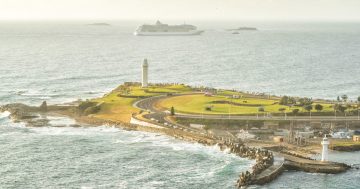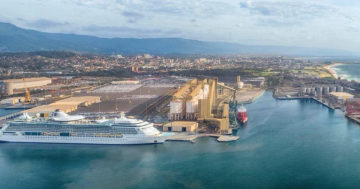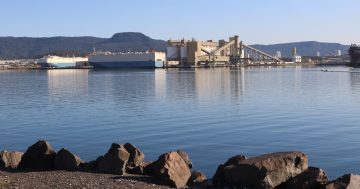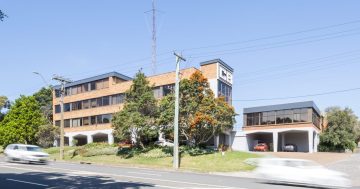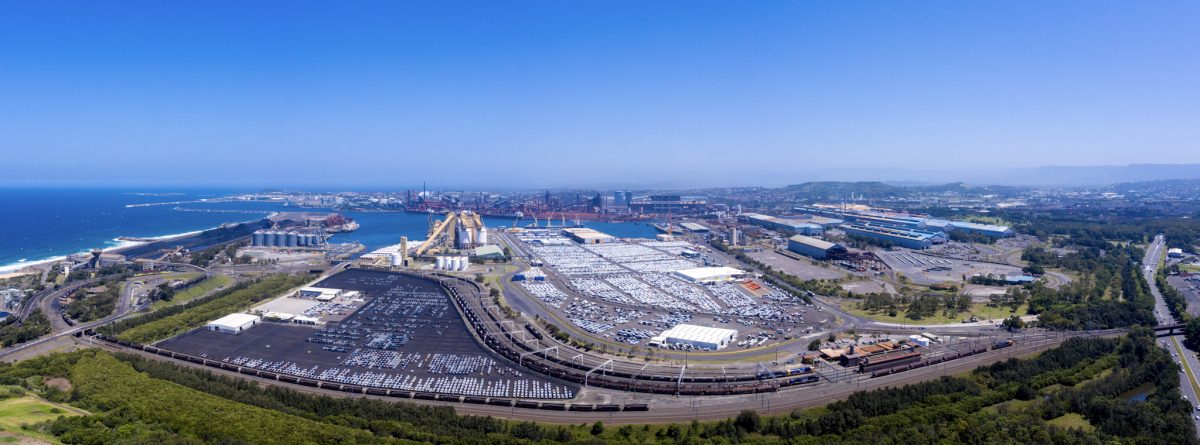
A $40 million ethanol storage and export terminal has been approved for Port Kembla. Photo: NSW Ports.
The NSW Government has approved the construction of a $40 million bulk ethanol storage and export terminal at Port Kembla.
The Manildra Group’s project will include the construction of six storage tanks, a truck loading gantry, pipelines to an existing ship berth and ancillary infrastructure. It will have an annual throughput of 250 million litres.
When fully constructed and operational, the 24-hour terminal will provide storage and export of Manildra’s beverage-grade ethanol produced at its Shoalhaven Starches’ Bomaderry facility. About 200 ML of ethanol will be exported via pipeline with a ship accessing the berth every one to two weeks.
The Shoalhaven Starches factory produces flour, gluten, glucose and starch and is Australia’s leading producer of ethanol, including a range of grades for food and spirits (beverage), pharmaceuticals and personal care products, industrial applications and transport fuels.
Manildra’s state-of-the-art distillery, which is the largest facility of its kind in Southeast Asia, produces pure grain-neutral spirits for makers of high-quality spirits.
The company currently transports ethanol to Port Botany for storage and export, but says the pipelines which are used to transfer the ethanol to ships are also used for other products, presenting a risk to the quality of beverage-grade ethanol and requiring additional cleaning. There is also limited space to increase storage capacity at Port Botany.
About 80 per cent of the ethanol at its Port Kembla terminal would be exported via pipeline and ships and 20 per cent would be supplied to domestic customers by truck transport. The development would generate 14 truck movements each day.
In approving the project, the NSW Planning and Environment Department said it would provide a range of benefits for the region, including $40 million in capital investment and 15 new jobs.
“The project is consistent with the approved Port Kembla Outer Harbour Concept Plan which involves construction of additional port facilities over the next 15 years,” the department said.
However, several public submissions – including from Wollongong City Council – had raised concerns about transporting ethanol on the public road network, particularly safety, and other amenity impacts including noise, air pollution and congestion.
They called on Manildra to consider using rail to transport the ethanol from Bomaderry to Port Kembla.
In response, the department considered the option to use rail but decided it was less efficient than road transport.
“The Department also notes [Manildra] is currently transporting ethanol along the M1 Motorway to Port Botany for export and this would discontinue once the Port Kembla terminal is operational. The travel distance would be substantially reduced, and ethanol would not be transported through residential zoned areas,” the department said.
Wollongong Lord Mayor Gordon Bradbery said the Port was a focal point for the regional economy.
“Manildra’s bulk liquid fuel terminal shows that with the right planning, the Port can safely accommodate diverse activities that will have great economic benefit,” Cr Bradbery said.
“The terminal was approved under the 3 Port SEPP and council’s role in the approval process was limited. Council did represent the concerns of local residents to get assurances of safe storage margins and transportation.’’
NSW Ports has welcomed the approval, saying it would bring new trade to the growing port precinct.
“The proximity of Manildra’s Shoalhaven Starches plant to Port Kembla will reduce the number of truck movements between the Illawarra and Sydney, as ethanol will no longer need to be transported from Bomaderry to Sydney for export,” a spokesperson said.
“The facility will support the state’s farmers, allow Manildra – an Australian-owned business – to connect with global customers, and bring new trade to the growing Port precinct.”









